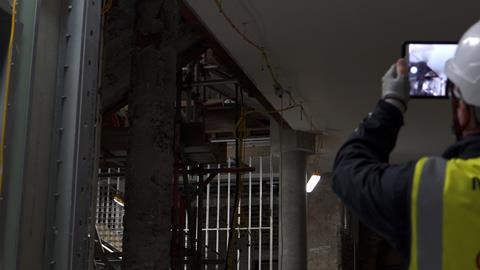Culture, training, and technology key in implementing the Building Safety Act and maintaining a standardised approach to construction projects
The Grenfell Tower block tragedy in west London that claimed 72 lives on 14 June 2017 had failings that could be directly attributed to poor auditing and no shared responsibility that an audit trail brings with it. Since that tragic day, the UK government — via the Building Safety Act — has focused on ensuring the safety of the UK’s built assets by changing the way projects are managed. The golden thread, a digital record of all key building information, is a central part of these reforms.

Implementing the golden thread means firms will need to keep a detailed audit trail of each stage of the construction and design process and meet the required standards. But are UK firms and the industry as a whole ready?
Trimble Viewpoint, along with the Building team, surveyed construction professionals in early 2022 to identify key components and obstacles to implementing the golden thread of information. Contractors echoed three key elements they view as vital to a connected construction environment that maintains the golden thread of data: culture, training/education and modern technology.
Not surprisingly, these three elements were also noted as the biggest internal challenges to overcome when adopting a connected approach to construction. Nearly all survey respondents agreed that modern digital technologies will lead to stronger audit trails and higher-quality work.
Culture
Having a complete audit trail creates a culture of collective responsibility, whether that be to ensure your own team’s job is done safely, or to sign off high-quality jobs from a project manager stance.
An overriding theme of the survey was culture and how it might be affecting change management within the industry. In fact, culture was touted as the main obstacle to achieving accurate audit trails industry-wide with nearly 80% of respondents believing so, and 81.4% of respondents believe an accurate audit trail could improve accountability around work carried out.
Training and education
There is clearly an understanding that processes in the industry need to be evaluated, amended well-documented and easy for teams to access from anywhere. And, those processes need to be taught to all project stakeholders. More than a third of survey respondents (37.6%) felt the industry does not have the required processes in place to assess a tenderer’s fire safety competence. When asked about their confidence in their firm’s understanding of the golden thread of information on a scale of 0 to 10, the average rating was five.
In practice, this lack of understanding appears as inconsistent audit trails from site to site.
Technology

Almost 90% of survey respondents said they feel an accurate digital audit trail will facilitate better decision-making and improve accountability across the built environment, while the capture of information in real time and improved quality of work through project management and workflow are also considered to be significant potential benefits by 55% and 75% of respondents respectively.
To get to this level of project oversight and accountability, many contractors are adopting modern construction technologies such as cloud-based project management solutions and mobile applications that deliver real-time data and automated workflows, and alleviating much of the administrative and human error that is found during traditional project workflows.
“With digital technology, everything is logged and recorded, and it’s there on a cloud-based system which can be accessed by anybody” says Stephen Brady, project manager, Designer Group — Tower Hamlets historical renovation and new construction project.
Brady notes the construction team utilised digital technology to maintain audit trails for “health and safety forms, such as daily diaries, health and safety inspections, weekly tool inspections, ladder and inspections, etc. Before this, it was entirely a long process of paper forms. Now, everything is logged and recorded and it’s there on a cloud-based system which can be accessed by anybody.”
Reaping the Golden Thread benefits
The more transparent, real-time and collaborative a project can be, the more beneficial the golden thread can be for everyone. With all these factors in mind, it is clear that firms need to look at the challenges they will face in implementing the digital audit trails needed for the golden thread and what they can do to tackle them in order to reap the benefits that could be achieved.
Ben Wallbank is the BIM strategy and partnerships manager at Trimble Viewpoint

























No comments yet